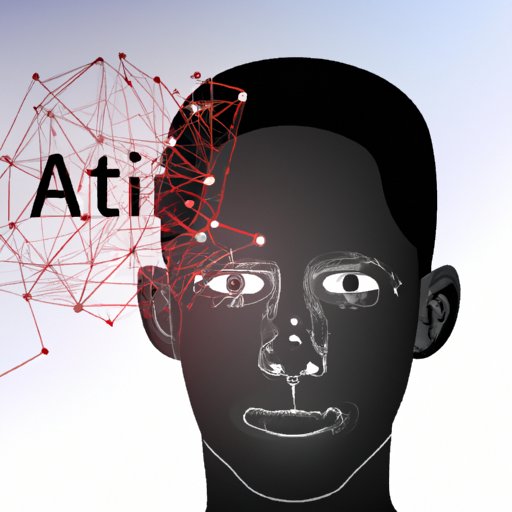Introduction
Artificial intelligence (AI) has become a pervasive force in our increasingly digitized world, transforming the way we interact with technology and driving innovation across industries. AI refers to the ability of computers and machines to learn from data and make decisions without direct human intervention. As AI advances, its applications are becoming more widespread, and its impact can be seen in many aspects of our lives, including the workplace.
Examining the Impact of Artificial Intelligence on Employee Skills and Job Roles
As AI is adopted in the workplace, it is necessary to consider how it will affect job roles and employee skills. AI has the potential to redefine job descriptions and create new types of positions that did not exist before. For example, AI-driven marketing campaigns may require employees to have a deeper understanding of analytics than was previously necessary. AI-enabled customer service platforms may necessitate the hiring of professionals who understand both machine learning and user experience design.
In addition to creating new job roles, AI is also changing the skillset required for existing jobs. For instance, data scientists must now be familiar with AI technologies such as deep learning, natural language processing, and computer vision. Similarly, software engineers must have experience developing AI-powered applications. As AI becomes more sophisticated, the demand for skilled workers who understand its complexities will continue to grow.
Finally, it is important to note that AI has the potential to automate certain jobs, leading to job displacement. While this could potentially result in cost savings for businesses, it is important to consider the human implications of such automation and take steps to ensure that those affected by job losses are taken care of.
Exploring the Benefits of AI in the Workplace
Despite the potential challenges posed by AI, there are numerous advantages to incorporating it into the workplace. Chief among these is increased efficiency. AI solutions can automate mundane tasks such as data entry and analysis, freeing up employees’ time to focus on more complex tasks. This can ultimately lead to improved accuracy of operations and higher levels of productivity.
Another benefit of AI is improved decision making. AI-powered algorithms can quickly analyze large amounts of data and provide insights that would be difficult or impossible for humans to discern. This can be invaluable when making strategic business decisions or responding to customer inquiries.

Investigating the Challenges of AI Adoption
While the benefits of AI are undeniable, there are several challenges that must be addressed in order to ensure successful implementation of AI solutions. The first is cost. AI solutions can be expensive to implement, and businesses must weigh the costs against the potential return on investment when deciding whether or not to invest in AI.
Finding qualified AI professionals is another challenge. As demand for AI experts grows, competition for talent is increasing, and it can be difficult for businesses to find the right personnel to develop and maintain AI systems.
Finally, implementing AI can bring with it the risk of cybersecurity breaches. With the proliferation of connected devices, it is essential to ensure that security measures are in place to protect sensitive data from malicious actors.

Analyzing Potential Ethical Issues Posed by AI
In addition to the practical challenges posed by AI, there are also ethical considerations that must be taken into account. One of the most pressing issues is privacy. AI technologies are capable of collecting vast amounts of personal data, and it is imperative that companies have robust policies in place to ensure that data is used responsibly.
Unintended discrimination is another potential ethical issue. AI models are only as good as the data they are trained on, and if the data is biased, the models can produce results that are unfair or even illegal. Companies must take steps to ensure that their AI systems do not perpetuate existing biases.
Finally, it is important to consider the lack of human oversight when using AI. Automated systems can make decisions without any input from humans, and this can lead to unintended consequences. Companies should ensure that there are safeguards in place to ensure that AI systems are used responsibly.

Discussing the Future of Work with AI
As AI continues to evolve, its impact on the workplace will likely expand. Predictions for the future of work with AI include increased automation, more personalized customer experiences, and greater collaboration between humans and machines. Companies must prepare for these changes by investing in AI tools and training employees on how to use them effectively.
It is also important for companies to consider the implications of AI on their organizational culture. AI can help foster a more collaborative environment by enabling teams to work together more efficiently. However, it is important to ensure that AI does not replace meaningful human interactions or lead to feelings of isolation among employees.
Evaluating the Implications of AI on Employee Well-being
As businesses embrace AI, it is important to consider the potential impacts on employee well-being. On one hand, AI can help reduce stress levels by automating mundane tasks and providing employees with more accurate information. On the other hand, AI can create feelings of isolation and disconnection if it replaces meaningful human interactions.
Businesses can take steps to mitigate the negative impacts of AI on employee well-being. This can include providing additional training on how to use AI tools, encouraging team collaboration, and ensuring that employees have access to support resources.
Conclusion
Artificial intelligence is having a profound impact on the modern workplace, bringing with it both benefits and challenges. Businesses can reap the rewards of AI by taking advantage of its increased efficiency and improved decision making capabilities. At the same time, it is important to be aware of the potential risks posed by AI, such as cybersecurity breaches and unintended discrimination. Finally, businesses should strive to ensure that AI is used responsibly and that its adoption does not negatively affect employee well-being.
In conclusion, while AI presents both opportunities and risks, businesses can prepare for its continued expansion by investing in AI tools and training employees on how to use them. By doing so, companies can ensure that they are well-positioned to take full advantage of the possibilities offered by AI.
(Note: Is this article not meeting your expectations? Do you have knowledge or insights to share? Unlock new opportunities and expand your reach by joining our authors team. Click Registration to join us and share your expertise with our readers.)
